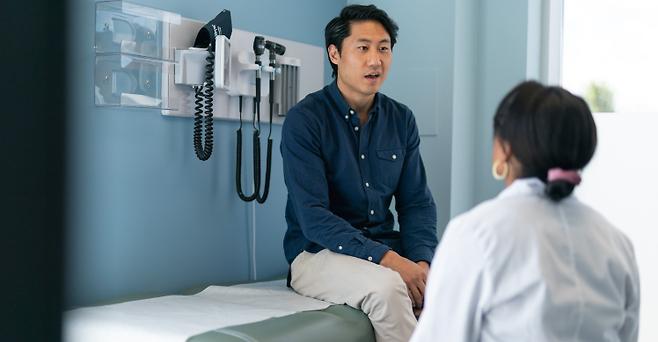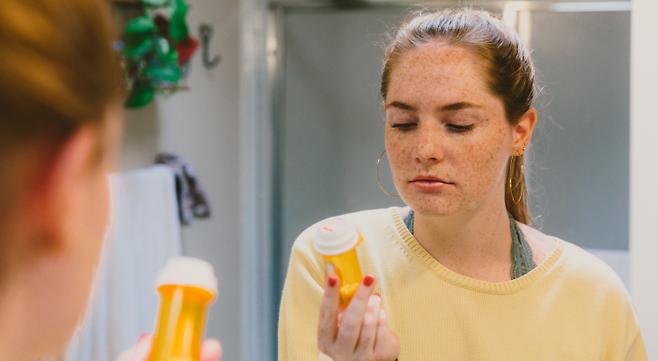
The Healthy Resolution You Need This Year: Get a Primary Care Doctor
Jan 11, 2021 | Family Medicine , Wellness and Healthy Living | Share:
It’s a new year. Are you making any resolutions for better health?
Maybe you’d like to lose weight, drink more water, or start a new exercise routine. These are great resolutions, and they can help you maintain long term health. But these resolutions might not last past February.
But there is a resolution you can make for better health - and it’s one you can actually keep. In 2021, resolve to establish care with a primary care doctor.
What is a primary care doctor?
A primary care doctor is a general doctor who is often board certified in internal medicine. There are many types of primary care doctors, including pediatricians, family doctors, general practitioners, and internists. Your primary care doctor is who you visit when you feel sick, want wellness advice, or need management of ongoing health issues.
Primary care doctors provide relationship-based care to their patients. This means that when you choose a primary care doctor, you stay with them as your medical home base over an extended period of time. Through this consistent care, your provider gets to know you and your medical history.
Why do I need a primary care doctor?
Everyone needs a primary care doctor. Even if you’re young, healthy, and have no current medical issues, you need a medical home base. Here’s why.
A primary care doctor can help you stay healthy
Many people don’t see the need for a primary care doctor because they just don’t get sick that often. And if they do get sick, it’s easy for them to get care from an urgent care clinic. Why bother with an extra doctor’s visit if you’re already healthy?
According to a study published in JAMA Internal Medicine in 20191, individuals who have a primary care doctor are more likely to
- Get regular checkups and wellness screenings
- Stay up-to-date on their needed vaccinations
- Fill their needed prescriptions
- Have better access to health care
- Report better experiences in the health care they receive
This means that individuals with a primary care doctor are more likely to get healthcare that helps them stay healthy.
When you visit a primary care doctor for the first time, your doctor will establish a baseline for your health. When you come in for future check-ups and sick visits, your doctor will monitor changes in your vitals and labs over time. He or she can tell you if your blood pressure is trending upwards slightly, or if your labs seem to indicate that something has changed. Your doctor can notice when things aren’t quite right, even if it hasn’t presented as an acute issue for you yet, and recommend needed interventions or screenings.
Your primary care doctor can also keep you up-to-date on important vaccinations. Do you know when you last had a tetanus shot? Your primary care doctor can keep you out of the ER the next time you have a DIY incident with an old nail. They can also help you identify which other vaccines are important for you to get, such as the seasonal flu vaccine or the new coronavirus vaccine.
As an added bonus, most insurance providers cover annual checkups as preventive care with no charge to the patient.

Primary care makes healthcare more comfortable
Doctor’s visits can be awkward. It can be difficult to discuss issues that are going on with your body -- especially if you’re talking about them with a stranger. But when you have an established relationship with a primary care doctor, it’s easier to discuss health matters, even the awkward ones. This relationship also helps you build trust with your doctor, helping you feel confident that you’re getting the care you need.
Communication is an important key to good health. You need to be able to communicate with your doctor about your symptoms, questions, and concerns. When you’re only getting your healthcare from the urgent care doctor on call, it can be difficult to have clear lines of open communication with your healthcare provider. Your primary care doctor is there for you for wellness visits, when you’re sick, and when you have questions.
Primary care simplifies getting the healthcare you need
Everyone has healthcare issues at some point. Whether it’s for a bad sinus infection, chronic pain, or a new mysterious ailment, you’ll eventually need to see a doctor. And while a doctor at an urgent care clinic can treat most of these things, it’s so much simpler to get care from your primary care doctor.
If you’re having stomach troubles, you could go directly to a gastroenterologist. But it usually takes months to see a specialist without a referral, and once you do go for your visit, your doctor can’t help you with other issues you may be having -- they’re only there to help you with your stomach.
Your primary care doctor is a generalist, which means you can discuss multiple healthcare issues in one appointment. You can talk about your stomach issues, but also in the context of that heartbeat that seems to race, anxiety over your new job, and that flu shot you meant to get last month.
When you do need a specialist to help with your medical care, your primary care doctor can help. They can make a referral to a specialist that best fits your situation and needs, and they can often schedule an appointment for you. And if you see multiple specialists, your primary care doctor can serve as your medical home to direct your care across specialties, keeping your whole body health in mind.
Your medical history matters in getting good healthcare, especially when you’re sick or have a problem. Because your primary care doctor knows you and your medical history, they can look at new health issues in that context. An urgent care doctor can only treat the condition that they see in front of them and, while you sometimes just need urgent care, your primary care doctor can treat you best.

Primary care helps you manage your chronic conditions
If you have one or more chronic medical conditions, you need consistent medical care and monitoring. Your primary care doctor can create a treatment and management plan for your condition and will monitor your health over time. They can also adjust your treatment if your condition changes or you develop new issues.
Patients with chronic conditions often have many prescriptions, sometimes from multiple doctors. Your primary care doctor can help you manage your prescriptions and monitor their effectiveness over time. And if something seems off or you just don’t feel quite right, it’s easy to schedule an appointment with your primary care doctor to check-in. At MedHelp, you can even schedule a telehealth appointment to make checking in even easier.
Primary care helps you avoid the ER
Did you know that most outpatient conditions that are treated in the emergency room could actually be treated by your primary care doctor or even prevented through good primary care?2 While the Emergency Room is open 24 hours a day, 7 days a week, it’s no substitute for good primary care.
Avoiding the emergency room will help you save money. Even if you don’t have insurance, a trip to your primary care doctor will cost you much less than a trip to the emergency room.
How to find a primary care doctor
You can establish care with a primary care doctor at any time, but the best time to do it is when you’re healthy. But how do you find one?
Whether you ask your friends for recommendations or do some internet research, it’s important to find a primary care doctor that fits your schedule and your needs.
- Look for a doctor that has a location near you; you don’t want to have to drive a long way every time you need to see a doctor.
- Find a doctor that has office hours that fit your schedule. Many offices offer extended weekday hours for their patients so you don’t have to miss work to see the doctor.
- Make sure the doctor is available and easy to schedule appointments with when you need one. You shouldn’t have to wait weeks for an appointment with your doctor.
Once you’ve found a primary care doctor who is accepting new patients and that meets your needs, you should schedule an appointment. You really need to see the doctor first before you can determine whether they’re right for you; treat your first visit like an interview. Make sure you bring along your questions, concerns, prescriptions you may be taking, and your medical history.
If you liked your doctor at that first visit, plan to visit your doctor once a year for a wellness visit. Of course, you can schedule an appointment at any time that you have a medical need.
If you’re looking to get healthier in 2021, finding a primary care doctor should be a top priority. Having a primary care doctor will set you up for long-term health for this year and for the future.
MedHelp doctors offer primary care medicine as well as urgent care in the Birmingham area. If you’ve seen a doctor at MedHelp for urgent care and you’d like to make them your primary care doctor, call the clinic near you to see if your provider is accepting new patients for primary care.
We can help you choose a doctor that fits your schedule and meets your needs.
References:
1Levine, D. M., MD, Landon, B. E., MD, & Linder, J. A., MD. (2019, January 28). Quality and Experience of Outpatient Care in the United States for Adults With or Without Primary Care. Retrieved January 5, 2021, from https://jamanetwork.com/journa...
2McWilliams, A, Tapp, H., Barker, J., Dulin, M. (2011). Cost analysis of the use of emergency departments for primary care services in Charlotte, North Carolina. Retrieved January 05, 2021, from https://pubmed.ncbi.nlm.nih.gov/22128684/